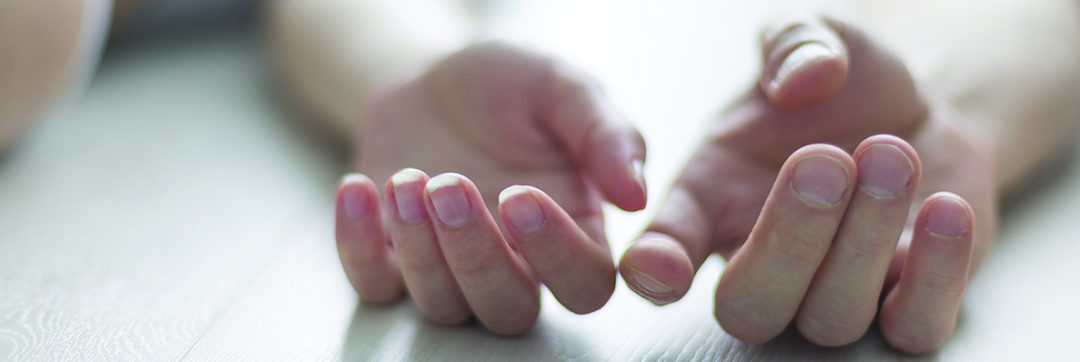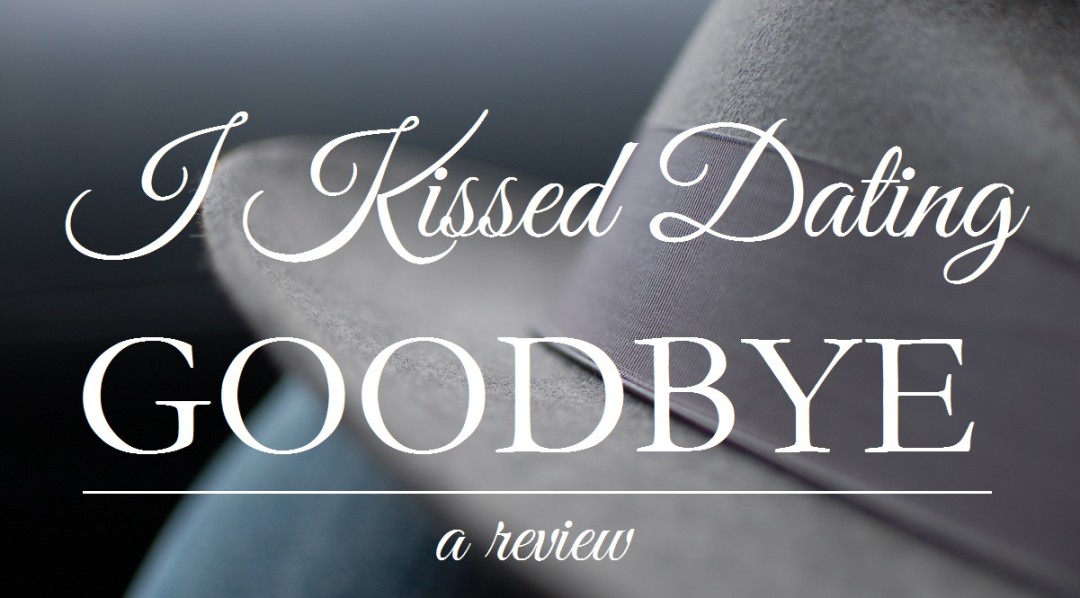One of my first-ever blog posts here is about the first time I ever bought jeans for myself. That day was so impactful I can still vividly see myself reflected in a dressing-room mirror at Aeropostale, listening to my friend and one of the employees chatting outside about my situation and the extreme demands I’d been under as a Christian fundamentalist woman. I can still recall the dread and panic I felt, desperately trying to feel any sense of liberation or joy in what I’d decided to do in a fit of gleeful rebellion. I want to wear jeans, I told myself. I want to be normal. I will not feel ashamed for wearing pants. There is nothing wrong with pants. There is nothing to feel afraid of.
Much, much easier said than done.
While I never experienced the same intensity of emotion again, and I did leave the mall that day with a pair of discounted GAP boyfriend jeans (hmm I wonder why a pair of baggy, unflattering jeans were on clearance?), the process of rejecting fundamentalist modesty culture was a journey of infinitesimally small steps. Looking back over the road I’ve traveled, though, I can see five clear steps I took that helped me escape the shame and abusive self-talk I was taught to feel about my body and how I dressed it. These steps, of course, may not work for everyone and they are not meant to be a replacement for self-discovery (and therapy!), but they did help me so maybe they can help you.
***
1) Wear the styles you like.
A few months after I wrote about the Aeropostale dressing room, I told a story of how my grandmother took me shopping for my birthday and I kept pushing myself away from any of the “worldly” styles I actually liked and toward the drab and “modest” clothing I knew I should want. There are a multitude of reasons why I so carefully steered me and my grandmother away from fashionable styles, and one of the biggest I’ve never delved into here was why I forced myself into colorless, shapeless sacks all the time. Yes, clearly those items were the most modest by the rules I’d been given, but I was also harassed and bullied by nearly all the women at church for my body.
I became an adolescent in a small church where every other girl was willow-like. Painfully thin (largely because of malnutrition and starvation, I would realize over a decade later) and narrow and straight. Even my sister fit into this category. And then there was me: still thin and girl-like, but developing obvious curves. A woman I idolized repeatedly “joked” about having too much junk in my trunk and my Sunday school teacher told me I needed to wear spanx or control-top panty hose every day because my bottom was “tempting” her husband. That harassment continued all the way through my teen years, and I turned to unflattering clothes, trying to make myself as ugly and unappealing as possible because I was scared.
Eventually, even considering wearing something stylish and fashionable was far too emotionally charged for me to handle.
College helped with this, mostly because my clothes identified me as an “ite” (short for PCC-ite, someone who closely lined with the school’s administrative ideology) and I didn’t want to be thought untrustworthy by my friends. While I always stayed firmly within the rules at school, I started exploring my options. My senior year, I wore a long crochet skirt from Newport News nearly every single day. I adored that skirt and the way it swayed around my feet as I walked. It made me feel good. Around the same time I also found a tie-dyed maxi skirt I still wear. I discovered I like V-neck and scoop necklines the best, and I prefer three-quarter length sleeves to cap.
Over time, as I continued wearing clothes I liked and made me feel good, it became easier to prioritize that feeling instead of the modesty rules I still carried around with me on every shopping trip. They were still there, but … not as critical. Not as loud.
2) Notice what you like on other people, and compliment them.
I have a bit of a reputation among my close friends and family that I am generous with my compliments, but what they don’t know is how this is a deliberate practice.
During my first year in graduate school, I was walking through a Wal-Mart foyer behind two other young women who were dressed very typically for a warm day in Virginia: shorts, tank tops, nothing unusual or even remotely scandalous. Walking towards us were a few women who were clearly fundamentalist of one stripe or another, and they were repulsed by the women walking toward them and did not hesitate to show their disgust on their faces. I thought wow, I used to be exactly like them. Then it occurred to me: wait, is this something I “used to do,” or do I still react this way? I wasn’t sure how deeply my background could still be affecting me, and how much I might be silently– but visibly– judging other women. To me, the easiest way to counteract any remnants of the shame I was taught to dole out on others was to actively work at finding something I appreciated. A haircut or color, a piece of jewelry, the sheen of fabric, cut of a shirt, a complimentary color. I even, on occasion, say one of those observations out loud.
Not only did this help me become less judgmental of other people, it helped me stop being so critical of myself. I stopped evaluating every item I wore by old standards I intellectually no longer wanted to follow but still had trouble escaping their influence on my choices. It became possible to be in a dressing room and ask do I like how this looks? and not is this modest? What will people think? It was easier to assume that when other people saw me they either a) payed no attention (the most likely option) or b) saw something they liked.
3) Normalize fashion.
I discovered Pinterest in 2011, and it was a revelation. While I’m aware Pinterest hasn’t been the healthiest place for a lot of people, for me it was a gateway into a world I’d never really explored before. While some of us grow up with fashion and teen magazines, and I enjoyed surreptitiously flipping through Elle and Vogue during Barnes & Noble Visits, I had never had the experience of looking at clothes and coveting them for myself. I started pinning outfits and looks I liked with abandon. My Pinterest feed filled up with gorgeous coats, cocoon sweaters, architectural dresses, and elegant lace. There’s one outfit in particular I’ve been assembling for eight years and just found the last piece I needed a few weeks ago.
Because of this, I finally started to see clothes primarily as self-expression and to enjoy clothes as art. Not every piece will appeal to every person, and that’s perfectly fine. But I like what I like, and maybe it’s unique and maybe it’s not but I don’t care anymore. Clothes can be fun, pretty, and interesting, and can communicate nearly anything I want to say.
One of the hardest adjustments I made from fundamentalism to the more typical American experience was my baseline was so incredibly different from “real life.” Growing up I was surrounded by boxy denim jumpers, prairie clothes, and handmedown Gunny Sax dresses. Building a Pinterest board, browsing fashion glossies, flipping through Victoria’s Secret catalogues, all helped me establish a new baseline. When I went shopping for clothes, I knew what the items I tried on were meant to look like, how to style layers, how to build outfits and a flexible wardrobe.
4) Don’t push too far.
To this day, I still wear camisoles underneath sheer blouses. I still make sure I don’t have “headlights.” I wear unobtrusive undergarments and base layers. My shorts are all at least a handspan long below my hips. I don’t like wearing pieces I have to constantly adjust.
I learned this lesson the hard way– I’ve gotten clothes that I only wore once, was extremely uncomfortable, and could never make myself wear again. There was this gorgeous black lace dolman-sleeve blouse I picked up at Maurice’s. I wore a camisole underneath it, but the see-through black lace was just too much for me at the time, and even though I could probably wear it if I bought it today and I held onto it for years because I loved it so much … I could never put it on again without feeling an echo of that discomfort.
I also learned that some of my aversions to tight clothes come from sensory processing disorder, and not modesty indoctrination. I do own some skin-tight, painted-on clothes, but only when they’re comfortable and don’t make me feel like I need to crawl out of my skin. Sometimes that panicky feeling was modesty culture rearing its ugly head, and sometimes it was SPD. I learned to listen to body and accept that I don’t need to force myself into discomfort just in the name of “I’m not a fundamentalist anymore! I do what I want!”
5) Find what you emotionally need from your clothes.
Recognizing my wardrobe needs to meet emotional needs has been one of the most difficult parts of this journey, and I’ve never really heard anyone talking about this component. I think it’s hinted at a lot, especially when people with very distinctive styles talk about their fashion choices, but I think this needs to be more openly and explicitly discussed. Clothes help shape and communicate our identity across a wide spectrum of realities, such as race, class, ethnicity, culture, gender, etc. Given that clothes are so closely tied to identity, “I have emotional needs regarding clothes” isn’t exactly a surprising (and probably not unique) observation, but I only came to this understanding after talking about my clothing choices and modesty culture a lot.
Above I mentioned being harassed and bullied and how it affected my wardrobe, and one of the longest-lasting effects it has had on me is that I must feel sexy in my clothes. This is fundamentally essential to me. If I feel frumpy, dowdy, unstylish, unattractive, it’s comparable to feeling triggered. Not as intense, but I can start to feel physically ill and I become super self-conscious. I actually start to lose a strong sense of my embodiment– a term I used once was “amorphous blob.”
This doesn’t mean I walk around in 6-inch heels and miniskirts everyday– in fact, I live in jeans and hoodies during the fall. But they are skinny jeans that make my ass look delectable and hoodies I think are cute and don’t swallow me whole. Often I’m wearing ballet flats or motorcycle boots and I make sure to do my hair. When I’m looking for professional clothes, I only look at pencil skirts– no A-line for me, no way. If I’m wearing something loose on the bottom, what’s on top is tight and vice versa. I absolutely refuse to wear a shirt that covers my collar bone, and I do not care how cold it is, that is why I own scarves. I show off my boobs — sometimes I show a little cleavage, sometimes I wear a push-up bra. I accentuate my curves.
I need to love my body. I need to feel proud of it, unashamed, unabashed. My clothes help me get there.
***
Anyway, this post is getting pretty long so I’ll stop there. I hope it’s helpful.







